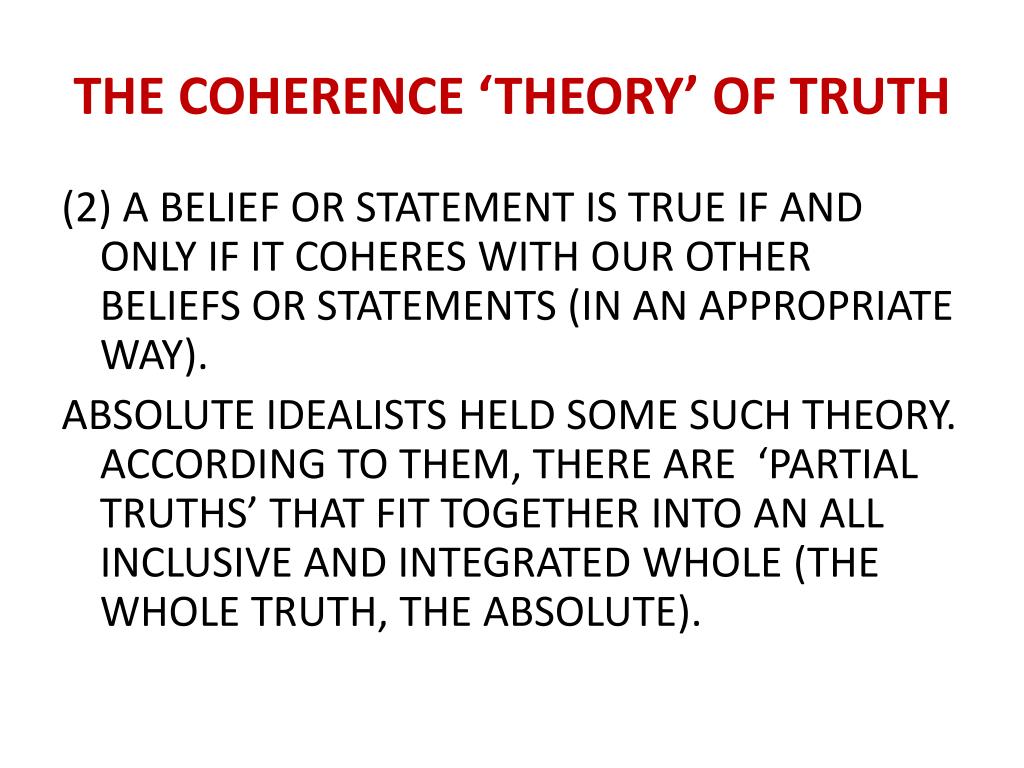

You were speaking with someone who believed that cultural lifestyle should be put before humanism. It still may contain thinking errors but it works in the direction of consciously trying to solve them. Objective logic contains the pragmatic and internal aspects of thinking but also it works out the external, reality-based constituents of the issues. It’s not until the coherence theory of truth or external evidence things does it become entirely objective in the correspondence theory of truth though it too all still carries the lower presuppositions required to reach this more elevated truth claim.

Then from this pragmatic outset of Subjective logic, it gets more objective as well as still having some subjectiveness. Subjective logic is applied in reasoning such as that found in the pragmatic truth theory stage where we add ethics of belief standards to add critical thinking and or the internal truth theory stage of truth coherence, and when it gets to the coherence theory of truth, as well as the presuppositions required to reach all higher truths even if never stated as such it is the steps needed to follow the thinking to its first start in the awakened and thinking mind and why above all reason is my only master.

I do Truth Navigation: Techniques for Discussions or Debates, adressing both inquiry questions as well as strategic facts in a tag team of debate and motivational teaching. ontology, epistemology, and axiology three philosophies that I use methodologically) both builds and destroys: it aids in building accuracy towards truth and destroy bad claims that are untrue. I value good Belief-Etiquette ( Addressing The Ethics of Belief ) : reasoned belief-acquisitions, good belief-maintenance, and honest belief relinquishment. Even in the mind of a single subject, consistency of beliefs is more demanding than coherence, but neither is very likely.Ĭoherence and consistency are best understood as desirable conditions for any theory of truth, including the correspondence theory of truth.Subjective logic, to me, is how all thinking starts as to start you don’t know and the rest is investigation, hypothesis, beliefs, new info and a reassessment of thinking then updated thinking to the greater accuracy. In a system of belief as large as the culture of a society, there are many conflicting beliefs. But consistency is only possible for relatively modest logical and mathematical systems. The coherence theory is close to the consistency theory of truth. In this case, coherence is one way to justify a belief. In traditional epistemology, the coherence may be internal to a personal set of beliefs that are accessible to a subject. In analytic language philosophy, the truth of a proposition depends on its agreement with some larger set of propositions, ideally all known true propositions and any logical inferences from those propositions. Charles Sanders Peirce's theory of pragmatic truth is the coherent inter-subjective agreement of an open community of inquirers. Perfect coherence is not to be expected, of course. In scientific theories, every new observational fact must be integrated with existing facts to make them maximally coherent. In philosophies of idealism, all the ideas or beliefs are said to cohere with one another, perhaps because the world is reason itself or created by a rational agent.
Coherence theory of truth in philosophy free#
Adolphe Quételet Jürgen Renn Juan Roederer Jerome Rothstein David Ruelle Tilman Sauerīiosemiotics Free Will Mental Causation James SymposiumĪ coherence theory bases the truth of a belief on the degree to which it coheres ("hangs together") with all the other beliefs in a system of beliefs (typically one person's beliefs, but it could be any body of knowledge).


 0 kommentar(er)
0 kommentar(er)
